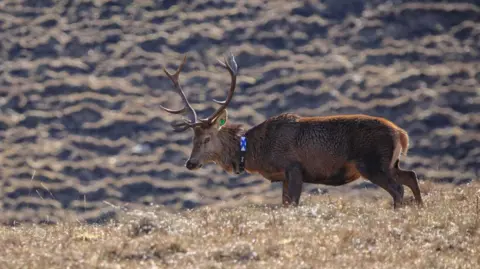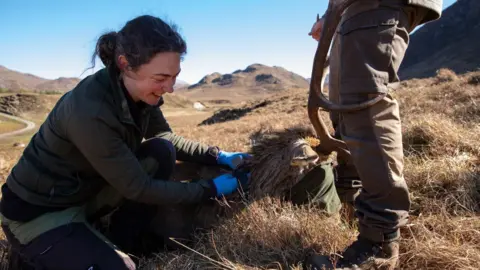Highland red deer tracked by GPS in behaviour study
 Siân Addison
Siân AddisonResearchers have fitted GPS collars on red deer in the west Highlands to help track their movement and behaviour.
The devices will be fitted on 22 stags while GPS ear tags have also been placed on six calves to help monitor them as they travel through the landscape with their mothers.
The study, involving sporting estates and conservation organisations, is a partnership between the charity Affric Highlands and Durham University.
Researchers hope their findings will help with efforts to keep deer populations healthy and sustainable and with the restoration of native habitats like woodlands.
 Siân Addison
Siân AddisonDr Eilidh Smith from Durham University said they would be tracking and mapping red deer movements to assess their seasonal migrations and home range sizes.
She added that this would build knowledge of how they respond to human activities such as fencing, culling and commercial stalking.
Nicola Williamson, field officer for Affric Highlands, said red deer were a vital part of Scotland's upland landscapes and rural economies – but "increased populations have led to challenges in balancing ecological health, biodiversity, and land management objectives."
She said strengthening understanding of how the animals moved across estates and habitats was "key to recovering ecosystems and improving deer health."
